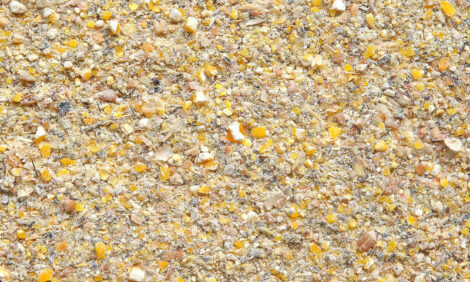



TURKEY CONFERENCE: Focus on Welfare and Management
UK - Welfare and management issues were at the heart of a varied programme of presentations at this year's Turkey Science and Production Conference, which started near Chester on 21 March. Senior editor, Jackie Linden, reports.The 2013 Turkey Science and Production Conference - the seventh in the series organised by Dr James Bentley - opened at the Carden Park Hotel near Chester in the north-west of England on 21 March.
Opening the conference, Dr Bentley explained that the new venue had been chosen as the popularity of the event had grown so much it had outgrown its previous home near Macclesfield. This year, more than 240 delegates from 23 countries had registered for the event, he said.
The 11 papers presented on the first day covered a wide range of topics with welfare and management as the main focus for the day, each covered by three papers.
Opening the presentation was Professor Peter Ferket from the Prestage Department of Poultry Science at North Carolina State University. He offered an overview of three areas of nutrition in his presentation - namely peri-natal nutrition, feed enzymes and feed manufacturing, which can be applied to turkey nutrition in the long, medium and short term, respectively.
Different aspects of turkey welfare were covered in the following three papers. Professor Werner Bessei of the University of Hohenheim in Germany discussed welfare assessment in turkey production in Germany, the EU and globally. From turkey company, Moorgut Kartzfehn, also in Germany, Dr Johnannes Aka described is company's work to control feather pecking and cannibalism without beak-trimming. None of these offered significant benefits over beak-trimming, he reported.
Dr Anne Marie Neetson of the Aviagen Group rounded off the welfare theme by offering a European perspective on turkey welfare.
The importance of early management of poults on overall turkey performance was reviewed by William Alexander of Hybrid Turkeys in Canada, while Dr Carlo Norci of Aviagen Turkeys explained his approach to achieving good litter quality.
The importance of egg hygience for optimum egg hatchability was stressed by Professor Nick Sparks of SRUC in Auchincruive in Scotland.
Turning to health, Christopher Teale of the AHVLA in Shrewsbury discussed the emerging issues of antimicrobial resistance in turkeys, while Dr Rikke Heidemann Olsen from the University of Demark outlined her recent work into avian pathogenic Escherichia coli (APEC).
On genetics, Magnus Swalander described Aviagen Turkeys' approach to driving robustness and gut health in its breeding programme for Europe, and the application of molecular genetics to turkey breeding was explained by Nico Buddiger of Hybrid Turkeys in Canada.
The final presentation of the day was on the prospects for the development of the turkey industry in Russia and its neighbours by veterinarian, Artur Paluswewski of PANDA in Poland.








